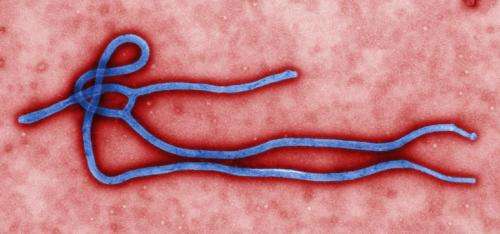Outbreak in Africa reveals a need for the contributions of engineers to global health

As Ebola continues to pose national and international risks, a role is envisioned for engineers, who are being called on to design devices and processes to help protect against the virus.
Last Thursday, the National Science Foundation issued an invitation to the scientific community for research proposals related to Ebola and other infectious diseases, noting important contributions engineers could make to aid rapid diagnostics, vaccinations and decontamination. On the same day, President Barack Obama signed an order allowing for National Guard and Reserve members to travel to West Africa to help build Ebola treatment centers. A number of national media outlets have reported that engineers and logistical specialists likely will be on the team.
At the University of Arizona, engineers and researchers such as Linda Powers, the Thomas R. Brown Distinguished Chair in Bioengineering, are contributing to preventative methods while also training the next generation of engineers to be prepared for biomedical issues of global concern.
Powers, who holds appointments in biomedical engineering and electrical and computer engineering and is a BIO5 Institute member, has been working with a UA team developing fast, disposable blood tests for detecting the pathogens that cause diseases such as HIV, hepatitis, malaria and other viruses.
"In cases such as Ebola, or any kind of crisis, epidemic or pandemic, it is important for engineers to understand what we need to do to help," Powers said, speaking Monday to dozens of UA engineering students and high school students. "Engineers can help mitigate risks to help prevent others from getting infected."
Powers presented her talk during in Engineering 102, a course that just started a month long project where students evaluate issues related to ways that engineers can improve health care, provide access to clean water and improve the urban infrastructure, among other things.
The College of Engineering restructured the introductory course several years ago to include a month long project around the National Academy of Engineering's "Grand Challenges for Engineering" to help students explore these and other grand challenges within the discipline.
"Throughout my career, there have been a number of events that have led to questions about how engineers can produce better structures and sensors," said Kathleen Melde, a professor in the UA Department of Electrical and Computer Engineering who teaches one of the course sections. As examples, Melde pointed to California earthquakes, the devastation of Hurricane Katrina and the current Ebola situation.
"In the College of Engineering, one of the things that is very important for us is that we emphasize that engineers engage in lifelong learning and ways that engineers can think out of the box," Melde said.
"But when people think about electrical engineers, they think of someone sitting in a cubicle developing circuits. But that couldn't be further from the truth. A lot of people choose engineering because they want to help people and, as those like Linda (Powers) show, we are really at the forefront of helping people."
Melde and Powers said engineers can make significant contributions to reduce the spread of infectious diseases. For example, engineers have developed and advanced the electron microscope to analyze nanopaticles as well as microbe sensor technology, among other instruments used for disease detection. Engineers also have developed lab safety protocol, built protective emergency materials, and developed lightweight devices used in medical research and treatment.
Powers' company, MicroBioSystems of Arizona, was awarded two U.S. Department of Defense contracts for the technologies that she and her team are working to develop.
Since receiving the contracts, Powers and her team members have developed a self-contained device and an instrument for testing for the presence of pathogens, which may one day be used by military personnel in the field and even by people living in remote areas.
The technology is meant to greatly improve the detection of blood-borne diseases, especially for individuals who have no access to medical facilities and who do not have medical training. Another boon: The self-contained device can be disposed of in the same way as medical waste, to keep infectious diseases from spreading, Powers said.
"This country has been fortunate that it has not had to deal with many situations like this," Powers said, referring to the Ebola cases. "But there are many more of these situations on the horizon, so there will be plenty of work for engineers who want to help tackle issues like this."
Provided by University of Arizona


















